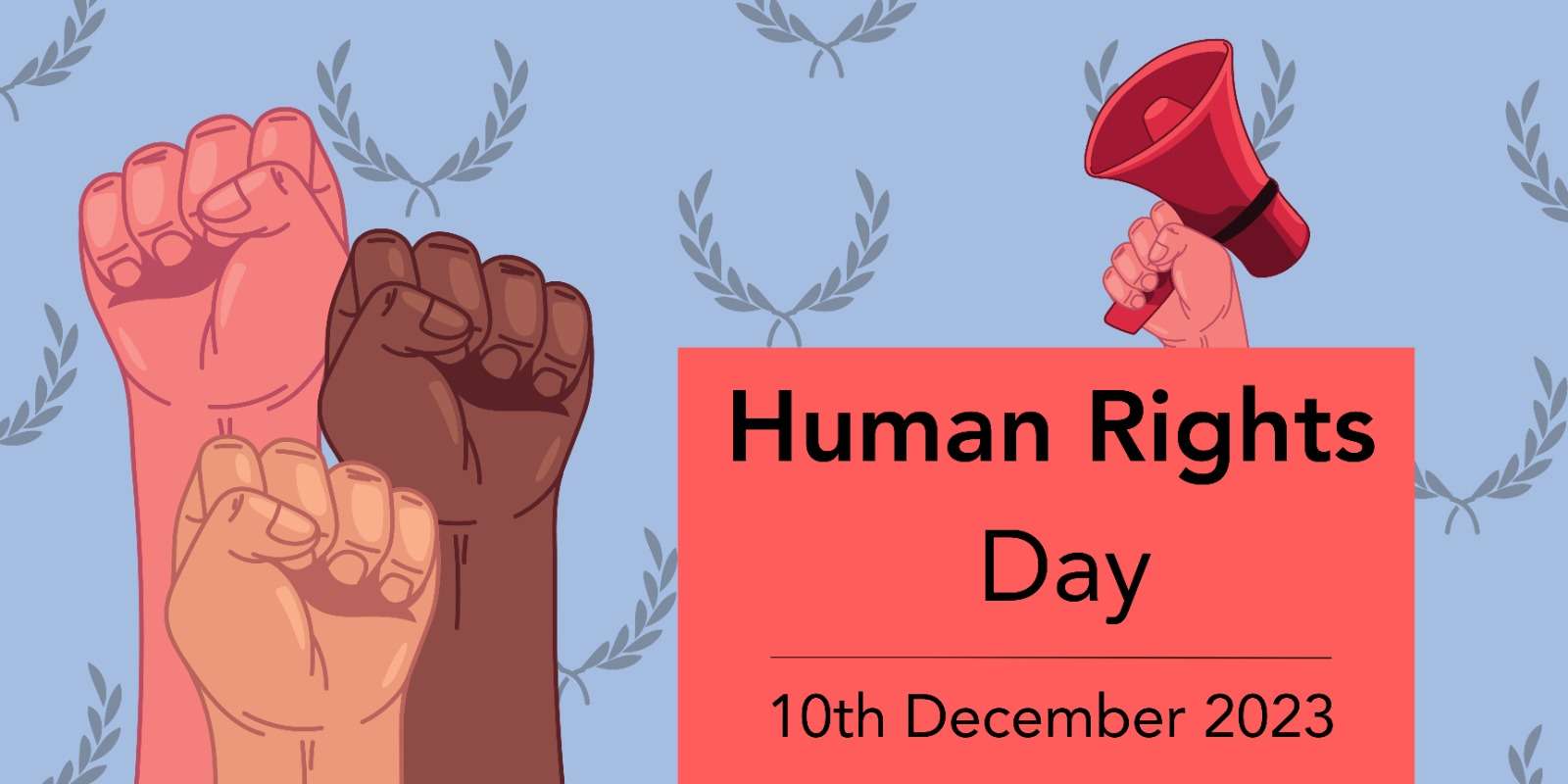Human Rights Day

In the tapestry of global observances, Human Rights Day stands as a beacon, reminding us of our collective responsibility to safeguard the inherent dignity and equal rights of every individual. Celebrated annually on December 10th, this day marks the anniversary of the adoption of the Universal Declaration of Human Rights (UDHR) in 1948. As we delve into the multifaceted dimensions of Human Rights Day, it becomes imperative to reflect on the historical roots, contemporary challenges, and the pivotal role of education in upholding human rights.
Historical Roots
The genesis of Human Rights Day can be traced back to the aftermath of World War II, a period marked by atrocities and a collective yearning for a world founded on justice and equality. The horrors of the war prompted the international community to unite in crafting a universal framework that would serve as a bulwark against the recurrence of such atrocities. This collective endeavor materialized in the form of the Universal Declaration of Human Rights, a document that crystallizes the fundamental principles and values that underpin the notion of human rights.
Significance and Importance
Human Rights Day holds paramount significance in fostering awareness and advocacy for the protection of human rights globally. It serves as a reminder that the principles enshrined in the UDHR are not mere aspirational goals but a shared commitment to ensure the dignity and rights of every individual. The observance of this day empowers individuals, communities, and nations to reevaluate their practices, policies, and attitudes, thereby contributing to the creation of a more just and equitable world.
Challenges Faced by Human Rights
Despite the laudable efforts invested in the promotion of human rights, the world grapples with multifaceted challenges. From systemic discrimination to political repression, the challenges are diverse and persistent. One of the pressing issues is gender inequality, where women and marginalized groups often face discrimination and violence. Eradicating these deeply ingrained disparities requires concerted efforts and a renewed commitment to the principles of equality and justice.
Universal Declaration of Human Rights
The UDHR, often hailed as a Magna Carta for humanity, articulates the inalienable rights that every individual is entitled to, regardless of nationality, ethnicity, or other distinctions. It encompasses civil, political, economic, social, and cultural rights, providing a comprehensive framework for the protection of human dignity. Familiarity with the UDHR is indispensable for advocates of human rights and aspirants preparing for the UPSC examination, as it forms the bedrock of international human rights law.
Gender Inequality
A critical aspect of human rights that demands heightened attention is gender inequality. Despite strides in gender equality, women continue to face discrimination in various spheres of life. Human Rights Day serves as a platform to spotlight these issues and galvanize efforts to dismantle patriarchal structures that perpetuate inequality. Empowering women is not only a moral imperative but also a catalyst for societal progress and development.
The Role of Education
Education emerges as a potent tool in the realization of human rights. An informed and educated populace is better equipped to challenge injustice, promote inclusivity, and advocate for the rights of the marginalized. Educational institutions play a pivotal role in nurturing a culture of respect for human rights, fostering critical thinking, and nurturing a sense of global citizenship.
The Way Forward
The journey towards a world where human rights are universally respected and protected is an ongoing endeavor. Governments, civil society, and individuals must collaborate to address the root causes of human rights violations and work towards building inclusive societies. Legislative reforms, awareness campaigns, and international cooperation are essential components of this transformative process.
Conclusion
As we commemorate Human Rights Day, let us reflect on the progress made and the challenges that lie ahead. The observance is not just a symbolic gesture but a call to action, urging each one of us to contribute to the realization of a world where human rights are not just a lofty ideal but an everyday reality. By upholding the principles of the Universal Declaration of Human Rights, we pave the way for a future where dignity, equality, and justice prevail.
Key Points for UPSC Aspirants
- Understand the historical context and significance of Human Rights Day.
- Familiarize yourself with the Universal Declaration of Human Rights and its key principles.
- Analyze the challenges faced by human rights globally, with a focus on gender inequality.
- Recognize the role of education in promoting and protecting human rights.
- Stay informed about current developments in the field of human rights, both nationally and internationally.
- Formulate a comprehensive understanding of the global efforts and initiatives aimed at upholding human rights.
- Emphasize the importance of inclusive governance and legal reforms in addressing human rights violations.
- Articulate the interconnectedness of human rights with other global issues such as poverty, climate change, and conflict.
- Develop a nuanced perspective on the cultural, social, and economic factors influencing human rights.
- Cultivate a commitment to advocacy and activism for the protection of human rights in various spheres of life.
Tags:
Best teachers in every subject.
Let’s get started
We can teach you anything
